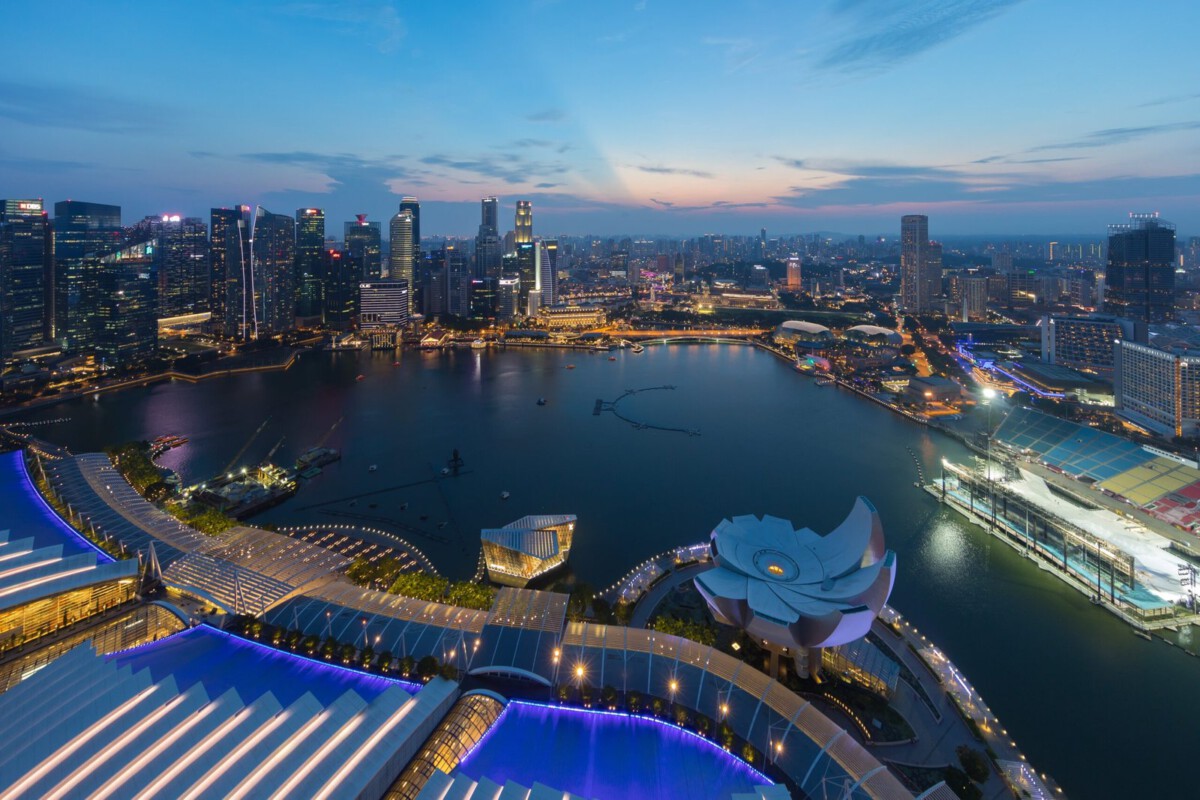Switzerland: High Costs and Strict Regulations

Switzerland dazzles with its pristine lakes and snow-capped mountains, but when it comes to owning a home, the reality is a cold shock. By early 2024, the average price for a residential property was around CHF 1.38 million (approximately $1.5 million). Foreigners hoping for a Swiss address face a bureaucratic maze: property purchases are restricted to certain regions, often resort areas, and buyers usually need to obtain a special permit. The Lex Koller law limits the number and types of properties foreigners can buy, making spontaneous investments nearly impossible. Even Swiss residents struggle with sky-high mortgage requirements and a fiercely competitive market. Many locals choose to rent for life, as the rental market is robust and buying is out of reach for most. The Swiss government regularly tightens lending laws to curb speculative buying, which means even well-off families are priced out. For most, the dream of Swiss homeownership stays just that—a distant dream.
Singapore: Limited Space and High Demand

Singapore’s glittering cityscape hides a harsh truth: owning a home here is a Herculean task, especially for foreigners. In early 2024, the average price for private residential properties was around SGD 1.55 million (approximately $1.15 million), with prices continuing to rise steadily throughout the year. Land scarcity drives prices up, and the government purposely restricts supply to keep the city-state livable. Foreigners looking to buy face a daunting 20% Additional Buyer’s Stamp Duty, making the cost almost prohibitive. Locals get some help through public housing, but even so, the resale market is competitive and expensive. Securing a mortgage as a non-resident is tricky, with stricter loan-to-value ratios and higher down payments. Many expats and investors find themselves priced out, forced to rent or look elsewhere. The government’s policies are aimed at curbing speculation and keeping property affordable for Singaporeans, but the result is a market where ownership remains a privilege for the wealthy.
Monaco: Exclusive and Expensive

Monaco, the tiny jewel on the Mediterranean, is known for luxury and exclusivity, and nowhere is this more evident than in its real estate market. By 2023, average property prices climbed to a staggering €50,000 per square meter (about $54,000), making the principality the most expensive place to buy property in the world. The market is tiny, with very few homes available, and competition is fierce among millionaires and billionaires. Foreigners face steep taxes and must navigate opaque regulations, including minimum residency requirements for certain types of ownership. The government exercises tight control, and properties are often sold to select buyers only. Even for those who can afford the price, finding a suitable property is a challenge—listings are rare and snapped up quickly. Renting is the norm for most, and longtime residents are often outbid by newcomers. This market is reserved for the ultra-elite, with little hope for anyone else.
Hong Kong: Skyrocketing Prices and Limited Supply

Hong Kong has a reputation for tiny apartments with sky-high prices, and the numbers back it up. In 2024, the average property price hit HKD 1.2 million ($153,000) per square meter, making it one of the priciest cities globally. The root of the problem is simple: extreme land scarcity combined with an ever-growing population. The government tightly controls land sales, limiting new supply and fueling speculation. For foreigners, additional stamp duties of up to 30% increase the barrier to entry. Locals too are squeezed, often living in “nano flats” smaller than a parking space. Even established families struggle to buy, with mortgages stretching over decades. Political uncertainty and shifting regulations only add to the challenge, discouraging long-term investment. The dream of owning a home in Hong Kong is out of reach for most, a stark contrast to the city’s glittering skyline.
New Zealand: Foreign Ownership Restrictions

In 2023, New Zealand took a bold step to curb housing speculation by banning most overseas buyers from purchasing existing homes. The move was intended to help locals, but with average home prices reaching NZD 1 million (about $650,000) in 2024, affordability remains a major hurdle. The ban doesn’t apply to new builds, but strict consent processes and limited availability make this a small consolation. The government’s Overseas Investment Act also places tough requirements on non-residents, including detailed background checks and strict use conditions. Even eligible buyers must contend with a fiercely competitive market, where bidding wars are common and prices rise faster than wages. The result is a market where both locals and foreigners struggle to secure property, with many forced into long-term renting. The policy has slowed foreign investment but hasn’t solved the affordability crisis, leaving homeownership out of reach for many.
Japan: Complex Regulations and High Costs

Japan’s real estate market is often seen as open, but practical hurdles abound. In Tokyo, the average home price reached ¥60 million ($550,000) in 2024, a figure that’s daunting for both locals and foreigners. While foreigners can technically buy property without restriction, getting a mortgage is another story—banks rarely lend to non-residents, and even residents face strict requirements. Property transactions come with significant fees and taxes, including stamp duty, registration taxes, and agent fees. The legal process is complex and unfamiliar to many, with language barriers adding another layer of difficulty. Property values in rural areas may be lower, but urban demand keeps city prices high. Earthquake insurance and strict building codes further complicate the decision to buy. For many, these challenges make owning a home in Japan feel more like a puzzle than an investment.
Brazil: Economic Instability and Legal Barriers

Brazil may conjure images of sun-soaked beaches, but its property market is fraught with obstacles. By 2024, average property prices in major cities like São Paulo reached BRL 1 million (around $200,000), but that’s just the beginning. Foreigners must navigate a labyrinthine legal system, with complex rules regarding land ownership, especially near borders or in rural areas. Bureaucracy is a notorious hurdle, with endless paperwork and unpredictable processing times. Economic instability, marked by inflation and currency fluctuations, makes long-term investment risky. Local buyers aren’t immune to these issues, and many are priced out due to high interest rates and low wage growth. Investors face additional taxes and fees, and legal disputes over land are not uncommon. The combination of these factors creates an environment where owning property is a challenge even for the determined.
India: Bureaucratic Challenges and High Demand

India’s property market is massive but riddled with red tape and soaring demand. In cities like Mumbai, prices reached ₹1 crore (about $130,000) in 2024, putting homeownership out of reach for millions. Foreigners can only buy property under strict conditions, typically requiring at least two years of residency. Even for locals, the process is slow and complicated by unclear land titles, frequent legal disputes, and corruption in property registration. The rush for urban housing has led to skyrocketing prices and fierce competition at every level of the market. Financing is available but comes with high interest rates and lengthy approval processes. Many buyers face additional costs from intermediaries and brokers, further inflating prices. The result is a system where patience and deep pockets are essential, and many give up before they even start.
South Korea: High Prices and Ownership Restrictions

South Korea’s real estate market, especially in Seoul, is a high-stakes game. In 2024, apartments in Seoul averaged ₩600 million ($500,000), making even modest homes a luxury. Foreign buyers encounter a web of regulations, from government approval processes to residency requirements for certain types of purchases. The government also periodically tweaks lending rules and taxes to cool the market, causing uncertainty for buyers. Locals face their own struggles, with home prices rising faster than wages and a limited supply of new housing. Rental prices have also climbed, leaving many with little choice but to continue renting. The process is further complicated by cultural expectations, with families often pooling resources to afford a down payment. For most people, both Korean and foreign, the dream of owning a home in Seoul remains distant.
United Arab Emirates: Market Volatility and Legal Hurdles

The UAE, especially Dubai, is famous for its futuristic skyline and ambitious real estate projects, but owning a home here is not as simple as it seems. In 2024, Dubai’s average property price was AED 1.5 million (about $400,000), but the real challenge lies in the volatility. Prices can swing dramatically with changes in oil prices and international investment flows, making long-term planning difficult. Foreign ownership is allowed only in designated freehold areas, and there are numerous legal requirements, including residency visas tied to property value. The legal system can be complex for foreigners, with property disputes and shifting regulations a constant risk. Financing is available but often comes with higher interest rates and strict eligibility requirements. The government frequently updates property laws, leading to uncertainty and hesitation among potential buyers. This ever-changing landscape makes owning property in the UAE a risky and often frustrating endeavor.







